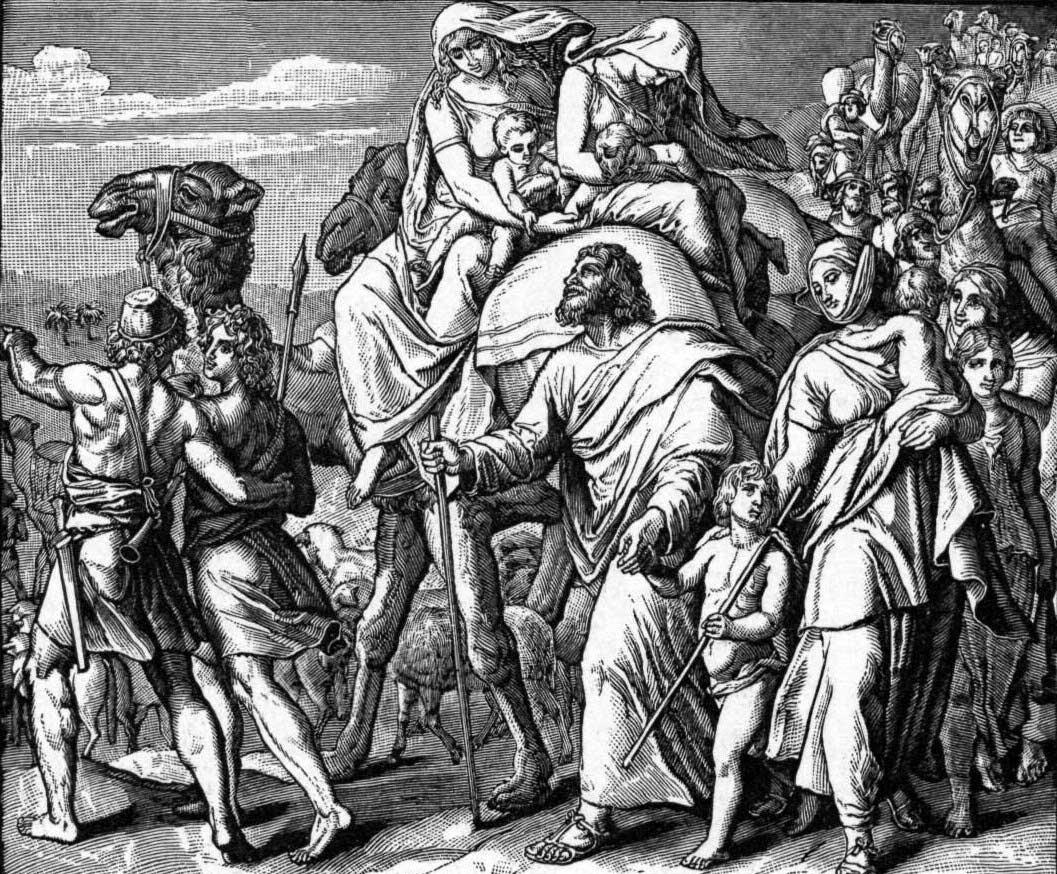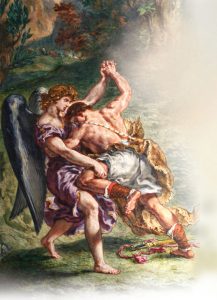
The tireless efforts and persuasion put in by the Jewish thinkers like Judah Bibas, Zvi Hirsch Kalischer and Judah Alkalai (a student of Judah Bibas), to draw the Jews settled in the diaspora to Jerusalem bore the much desired fruit and many Jews returned to the Holy Land towards the end of the 18th century and in the 19th century, a process known by the name the ‘Aliyah’.
The period between 1880 to 1903 saw the very first wave of the ‘Aliyah’ that is the process of the immigration of a large number of Jews from various corners of the world in Jerusalem. Thousands of Jews returned and settled in Canaan during the period. The land of Canaan was now truly taking shape as a ‘Jewish homeland’.

These three Jewish thinkers left a deep impression on a number of their contemporaries, apart from of course, influencing the masses. One of the Jews highly influenced by Alkalai’s philosophy was – ‘Theodore Herzl’, an Austro-Hungarian thinker.
Born in 1860 in a Jewish family settled in Hungary, Herzl had a multifaceted personality. His father had worked his way up to become a successful industrialist in Hungary. The world witnessed Herzl’s sharp intellect in the form of a journalist, a dramatist, a political activist and a writer. The contemporary German culture had influenced him in his youth. He was of the opinion that shedding traits that centuries of slavery had engendered in them, the Jews ought to follow the German cultural beliefs in the matter, strictly adhering of course to the Jewish religious principles, this with a view to emerging all-powerful in the world. From his grandfather, who was a conservative Jew, Herzl learnt about Judah Bibas, Zvi Hirsch Kalischer and Judah Alkalai and about the immense hard work these three persons had put into bringing the Jews settled in various parts of the world back to Jerusalem.

After the untimely death of his sister in 1878, Herzl settled with his family in Austria where he then grew, evolved and spent his life working towards the goal he set himself. It was here that Herzl’s writings were published and his plays gained popularity. Apart from working for some local dailies, he also worked for a French newspaper. However, he had not given a serious thought to the religion of Judaism or to the Jews until the year 1894 when a certain happening in Paris kindled precisely that.
The 1894-incident caused a furore and as a matter of fact, led to turbulence in the French society. The event which later came to be known as the ‘Dreyfus affair’ involved a Jewish officer named ‘Alfred Dreyfus’, serving in the French Army was arrested on charges of spying for the Germans. The arrest was followed by a farcical inquiry in which endless pleadings of innocence by Alfred Dreyfus were to no avail, and he was sentenced to life imprisonment. At the time, France like Europe in general, tended to feel bitter about the Jews although there were indeed a few who held a sympathetic outlook towards them.
The ‘Dreyfus affair’ polarized the entire French society into those who supported the Jews and those who condemned them. Agitations and protest marches by both the sides became an everyday affair. Pressure began to mount on the French leadership to reinvestigate the matter. Later, though the real culprit, in fact a French army officer was caught, and Dreyfus, exonerated and respectfully reinstated to his rank in the French Army by the government, the fact remained that Dreyfus had had to spend twelve precious years of his life in prison! Moreover, the French society too underwent a tumultuous phase.

As a representative of the Vienna-based French newspaper, Herzl was in Paris at the time. As a result, he could witness all the happenings from close quarters. ‘Kill the Jews’ shouted one of the anti-Semitic marches, unleashing in Herzl’s mind, a chain of thoughts. ‘Kill the Jews, but why? Just because they are Jews? Why this hatred for the Jews? How does the wrong (that too alleged not proven) on the part of one, justify the branding of an entire community as dishonourable? Herzl became pensive. The seeds of ‘Zionism’ were sown. Herzl realized that the unreasonable or rather mindless hate that the non-Jews had for the Jews could neither be beaten nor remedied. It could, at best, be warded off, which possibility only the creation of an independent Jewish state could help realize.
Inspired by this incident, he wrote a play named ‘The Ghetto’ (‘Ghetto’ means a part of a city, created and inhabited only by the minorities to safeguard themselves from the rage of the majority). During those times, the Jews who had settled across Europe and were a minority, created and stayed in many such Ghettoes to protect themselves from the wrath of the Europeans. In the play ‘The Ghetto’, Herzl rejected both the possibilities, in fact the only two, that the Jews were usually compelled to choose between, viz., ‘converting to a religion of the majority and embracing the customs and traditions of the majority community to eventually imbibe them in their own way of life. Moreover, through the play, he had also asserted that anti-Semitism was no longer just a religious issue but had also turned into a social problem. Herzl had firmly stressed that however much the Jews try to mingle with the local non-Jewish cultures, it was bound to prove futile as for the non-Jews they were and would always be ‘aliens’.

In 1895, Herzl wrote an article titled ‘The Jewish State’, which received as much acclaim as it did brickbats. Herzl’s article asserted and with conviction that ‘Judaism’ was not just the religion of the Jews but also their ‘nationality’, be they in any corner of the world.
A number of other small groups were then active in their own way, in persuading the Jews to return to Jerusalem. However, no one had given a thought to a crucial issue viz., ‘Even if the Jews return to Jerusalem, what next?’ Herzl was the first to think over it logically. In his article, Herzl discussed many issues with regards to the Jewish nation: the approach to be taken while negotiating with the Ottoman Sultan, the proposed lifestyle of the Jews in their new homeland, the social and public facilities and amenities in the Jewish state were among them.
The concept of ‘Zionism’ was now gradually taking definite shape!(To be continued…)












